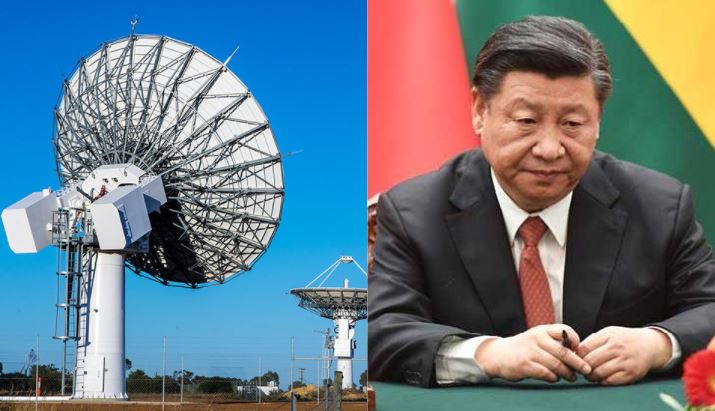The world is ruthlessly decoupling itself from China, and there is no sector in which Beijing seems to escape the wrath of the democratic world. Now, China’s space and Global Navigation Satellite Systems (GNSS) ambitions seem to be the latest casualty of the growing hostility against the Communist-authoritarian nation.
According to a latest Reuters report, a Swedish state-owned company- the Swedish Space Corporation (SSC) has announced that it would not enter into any new contracts with Chinese customers for the use of a strategic Space Tracking Station in Western Australia. China is thus going to lose access to the strategically crucial Space Tracking Station, a move that militates against the Communist nation’s navigational and Space exploration ambitions.
Since 2011, the SSC has been in a contract with Beijing, allowing the latter to access the satellite antenna at the ground station. But now the SSC is going to kick China out of the Australian site once the ongoing current expires, though the SSC has not disclosed when the lease period will terminate.
The SSC has said, “Given the complexity of the Chinese market, brought about by the overall geopolitical situation, SSC has decided to focus mainly on other markets for the coming years.”
These are first signs of what could turn out to be a shrinking space network for China, as it could be pushed out of many strategic locations across the globe.
Geopolitical tensions and China’s predatory characteristics are anyway becoming a contentious issue for countries around the world. And giving away access to Space Stations in such circumstances wouldn’t be a very prudent response to the Chinese threat. In Argentina, for example, China is facing accusations of using a Space Station for military and espionage purposes, something that should get all of China’s rivals worried.
The SSC by prohibiting China’s access to a Space Tracking Station in Western Australia is setting a precedent that could get other such ground stations to reconsider dealing with Chinese customers. This could actually force China to hold back its expansive Space exploration and navigational aspirations.
Access to Space Tracking Stations in different locations of the world isn’t just about capacity-building. It is a sine qua non for any effective Space Network in order to build telecommunications link with spacecrafts. Ground stations therefore play a crucial role in coordinating satellites for Global Navigation Satellite Systems (GNSS) such as Russia’s GLONASS or European Union’s Galileo system or the most commonly known Global Positioning System (GPS) owned by the United States.
Joon Wayn Cheong, a Senior Research Associate at the University of New South Wales’ School of Electrical Engineering said, “Generally speaking anywhere you put a GNSS monitoring ground station will improve the accuracy of positioning for that region.”
China wants to improve its own GNSS called BeiDou for civilian and military purposes in order to cut reliance on the US-owned GPS. BeiDou is still at the nascent stage and if China keeps losing access to ground stations in different parts of the world, the Chinese dream of building an effective GNSS technology will get permanently impaired.
SSC’s move to kick China out of a strategic Space Tracking Station thus comes as a bolt from the blue for Beijing. This puts the paper dragon in a very vulnerable position amidst rising Sino-American military tensions in the South China Sea.
Christopher Newman, professor of Space Law and Policy at Northumbria University in Newcastle, England told Reuters, “GPS could be made unavailable to them in a military conflict. An independent secure system is crucial for the capabilities of the People’s Liberation Army in respect to targeting, weapons, navigation.”
The free world has therefore found a new stick to beat China with. China’s enemies can easily kick the paper dragon out of strategic ground stations, create blind spots for Chinese Space exploration missions and sabotage its grand GNSS dreams.
